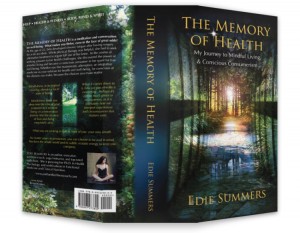How To Fight Fatigue and Get Your Energy Back Using High-Quality Supplements
0What should you do when tired becomes a way of life?
Take a look at your diet and take advantage of natural supplements to manage chronic fatigue syndrome and ignite your energy.
Look, this is a big topic. I can’t begin to cover all of it even by a landslide in this post. My book, The Memory of Health (see below for the link), goes into great detail about different theories of chronic fatigue, and what worked for me in terms of getting my energy back. I also offer many suggestions of what may work for you, beyond supplements, like self-care, nutrition, mind-body fitness, stress management, etc.
Losing your energy is a complex process, that is affected by many systems in the body. However, I have studied and lived it extensively, and I believe there are answers.
One of the ways that worked for me was taking high-quality supplements. Mindset, lifestyle, mind-body fitness, avoiding irritants (which can lead to chronic inflammation and, therefore, fatigue and brain fog) are some of the other ways I recovered my well-being and energy levels. I go into great, great detail in my book, The Memory of Health.
In terms of supplements, there are many that I use successfully to keep and improve my energy levels. Some of the supplements that work for me have very high-quality nutrition in them, in addition to micro-doses of stimulation like decaf green tea. There is a whole method to this: coupling deep nutrition with a small amount of positive stimulation. I cover this in my book, and this is a topic for another blog, but the point is that strategic supplementation can target sources of fatigue like inflammation.
In addition, there are always new supplements that I find that work for me along the way, like food-based vitamins. The list is way too long for me to list here, but it’s in my book, and I may do another post on exactly what it is I take. If you would like me to do a blog on it, comment below!
Some of my go-to supplements for energy are acai, food-based vitamins, and herbs like Maca.
To find out the specific brands I use, check out my book The Memory of Health (see below).
I will be writing a separate article on fatigue caused by brain fog. However, here are some of the supplements I use for that as well: DMAE, Gota Kola, Ginseng, Fo-Ti, anything anti-inflammatory like Omega 3’s and turmeric.
If you have a chronic condition like CFS, supplements may be crucial to your well-being. Check out this article. by Delicious Living. I covered ways to boost energy with deep nutrition and small amounts of strategic stimulation. Here are some supplements coming up that aren’t stimulating. For a comprehensive list of what I use, check out my book.
Over the past couple of decades, chronic fatigue syndrome (CFS) has gone from an it’s-all-in-your-mind diagnosis to a recognized disease that zaps the energy of an estimated 1 million Americans. It affects four times more women than men, according to the Centers for Disease Control and Prevention. In addition to profound fatigue, which interferes with daily activities, symptoms can include depression, insomnia and brain fog.
Also called myalgic encephalomyelitis, CFS is often triggered by a viral infection, such as the Epstein-Barr (which also causes mononucleosis) and is commonly described as a flu that doesn’t go away. Some patients report symptoms after a chemical exposure, such as to pesticides.
“CFS represents an energy crisis, centered in our body’s mitochondrial energy furnace,” says Jacob Teitelbaum, MD, author of From Fatigued to Fantastic (Avery, 2007). Teitelbaum says he cured himself of CFS through nutrition. I personally believe it’s a bit more complicated than just an energy crisis, and may be more related to the effects of chronic inflammation. I discuss many causes of chronic fatigue and CFS (note: there are different causes of chronic fatigue) in my book, The Memory of Health.
Because the primary CFS symptom is extreme fatigue for more than six months, nutritional treatments should focus on enhancing cells’ mitochondria, tiny structures that burn food for energy. Eating a high-protein diet low in sugars and gluten-containing grains is another approach that, some claim, has helped them combat CFS. Additionally, getting regular, moderate exercise will increase the numbers of mitochondria in muscle cells and boost energy.
Note: if you have CFS, traditional exercise is often not the way to go. However, building chi in your body and enhancing mitochodria still applies. There are other ways to build chi, like yoga, mind-body fitness, QiGong, Tai Chi, meditation, music, laughter, company, sitting by the window, etc. I encourage you to find a way to keep your chi moving, as this is a source of healing and life-force energy.
Here are six nonstimulant supplements, listed in order of likely effectiveness, that can also help you fight fatigue:
Other people swear by some of the following (and click here to see the original article, courtesy of Delicious Living):*
1. B-complex vitamins.
The production of energy in cells depends on most of the B vitamins. Of these, B2 and B3 play central roles in converting food to energy, and B1 and pantothenic acid are also of fundamental importance. These vitamins work in what’s called the Krebs cycle, which can be visualized as an energy-making waterwheel.
Dose: Try a B-complex or multivitamin with 50 mg each of B1, B2 and B3.
2. Coenzyme Q10 (coQ10).
This vitaminlike nutrient was the basis of the 1978 Nobel Prize in chemistry. Research has shown that people with CFS have low coQ10 levels and that supplements can improve energy levels. Some studies combined coQ10 with nicotinamide adenine dinucleotide plus hydrogen (NADH), the form of vitamin B3 found in mitochondria, leading to less fatigue.
Dose: 200 mg of coQ10 or 100 mg of its ubiquinone form, with an optional 5 mg of NADH daily; take coQ10 with a little oily food to enhance its absorption.
3. Carnitine.
This nutrient helps transport fats deep into cells so they can be burned for energy, and it is synergistic with coQ10. One study found that L-carnitine reduced CFS symptoms, and another reported that it improved physical and mental fatigue in centenarians, who tend to have age-related energy issues. However, the acetyl L-carnitine form may be more biologically active.
Dose: 1,000 mg daily.
4. Vitamin C.
You need this nutrient (along with B vitamins) to make your own carnitine. An early symptom of low vitamin C levels is fatigue, which may be related to decreased carnitine production. A recent study found that high doses of vitamin C reduced Epstein-Barr antibodies in people with CFS, a sign that immune responses were normalizing.
Dose: 1,000–5,000 mg (divided doses) daily.
5. Alpha-lipoic acid.
This antioxidant hasn’t been used in human CFS studies, but supplements were reported to benefit a patient with a genetic fatigue disorder. Alpha-lipoic plays key roles in cells’ energy-generating mitochondria, so it makes sense to include it to enhance energy production.
Dose: 200–300 mg alpha-lipoic acid or half that amount of the R-lipoic acid form.
6. Ribose.
Ribose helps form DNA and RNA and also makes the body produce energy. “Our published research showed that the energy nutrient ribose increased energy an amazing average of 61 percent in people with CFS,” says Teitelbaum.
Dose: 2,000–4,000 mg daily.
*I am not diagnosing, treating, or prescribing to you, by reposting this information seen above. Please seek a qualified practitioner to get a full and accurate diagnosis.
High-quality supplements offered by the natural foods industry changed my life. I am very sensitive to artificial ingredients, GMO’s, fillers, and low-quality ingredients (did you know if you are sensitive to something, it can create inflammation in the body – a big No-No!).
When I developed chronic fatigue, I turned to the natural foods industry to seek answers. I began working in the supplements department of a natural foods store, and taking high-quality supplements (I’ve tried hundreds of them to find which ones work for me), and by learning how to eat well, I improved my energy levels and well-being significantly.
I cannot take prescription drugs, so for me, having access to high-quality supplements was a game-changer.
I take them every day, and they make a BIG difference in the quality of my life and well-being. I discuss supplements in great detail in my book, in addition to my story, theories of chronic fatigue, and tactics to get well: The Memory of Health.
You can find my book here.
#LuluAuthor Edie Summers shares advice for those suffering from a chronic condition in her book #TheMemoryofHealth: https://t.co/auyNYL75hF https://t.co/hbMcmygIlr
— Lulu.com (@Luludotcom) March 28, 2017








Comments